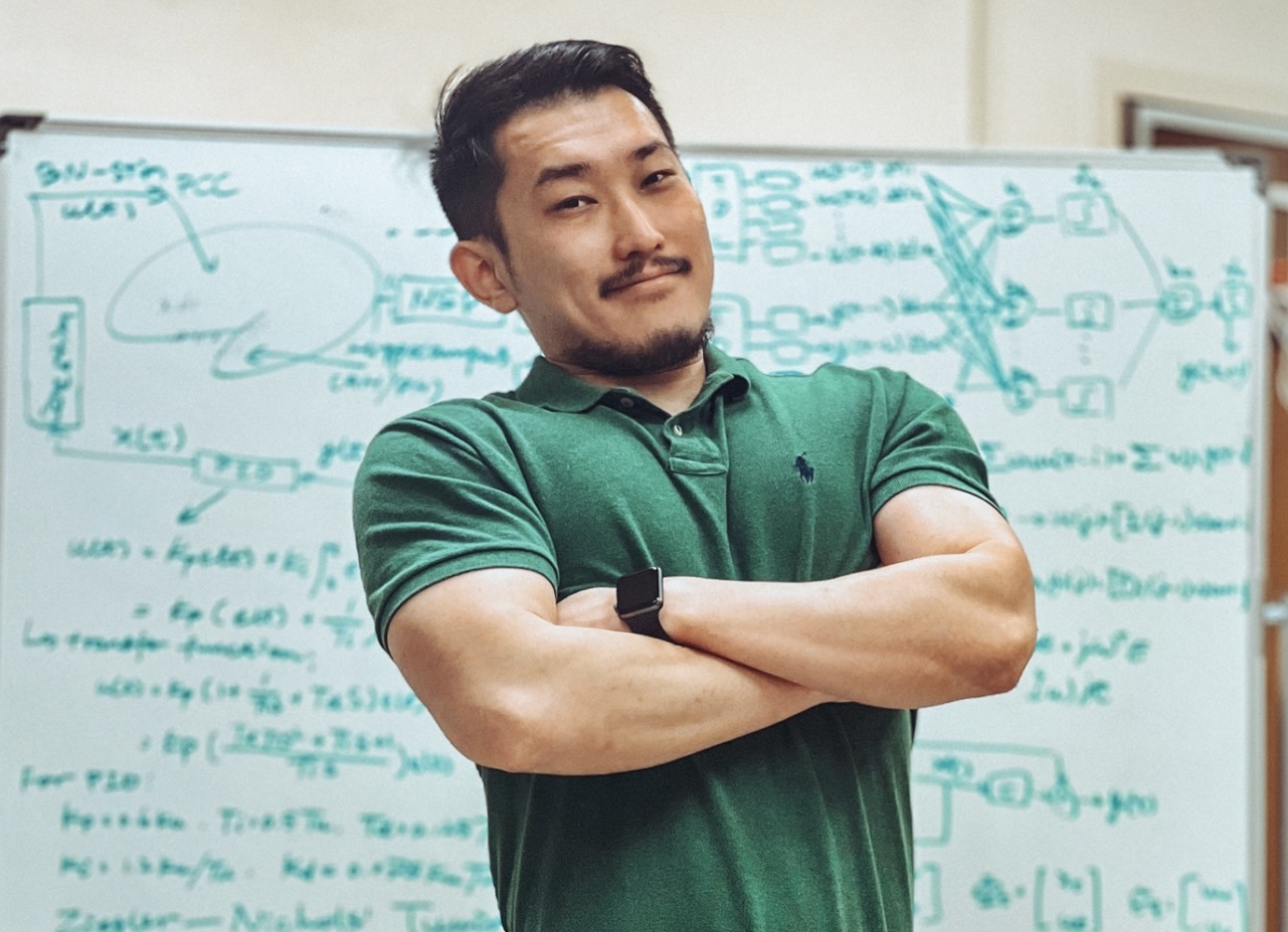Impactful Healthcare: SMU Lyle Alum’s Innovative Research for Neurological Disorders at UTSW
SMU Lyle Electric Engineering alum David Wang formulates breakthrough innovations in implantable brain devices to treat memory disorders, psychiatric conditions and more through electrical stimulation

David Wang is using his engineering expertise to revolutionize the way neurological disorders are understood.
When the SMU Lyle alum left China to pursue a master's in electrical engineering, he never thought someday he would be pioneering innovation in medical technology at UT Southwestern Medical Center as the clinical research manager working on brain-related health conditions. But he always had an interest in medicine.
“When I was a kid, I knew I wanted to make a difference in healthcare,” said Wang, who started his graduate career at SMU in 2016.
Wang's research as a graduate student was primarily in the fields of biomedical engineering and neuroscience led by his advisor, Dr. Carlos Davila, who taught his computational neuroscience class. Under Dr. Davila's guidance, he authored a compelling master's thesis focusing on the signal processing of auditory brain potentials. He submitted a paper on the topic to the IEEE EMBS conference in Berlin, inspiring him to continue continue his academic journey and pursue a Ph.D. in electrical engineering at SMU Lyle.
"David showed tremendous growth as a researcher while he pursued his Ph.D.," Dr. Davila said. "During his time at SMU, we published two journal articles and one conference paper, demonstrating his knowledge and ability to tackle complication signal analysis problems."
— Thinking grad school? Think SMU Lyle. Apply now through Aug. 1 for Fall 2024.
While working on his Ph.D., Wang had the opportunity to collaborate on a project with Dr. Brad Lega, the neurosurgical leader of UTSW epilepsy program, associate professor in the Department of Neurological Surgery and principal investigator of the Texas Computational Memory Lab.
“I began working on really cutting-edge studies at UTSW focusing on electrical brain stimulation for improving memory formation,” Wang said. “I found my passions in both learning about healthcare in the department of electrical engineering and also in the neurosurgery medical department.”
In May 2022, Wang graduated from SMU Lyle with his master’s and Ph.D. in electrical engineering. He was actively looking for a professional career, mixing both worlds of electrical engineering and medicine.
“Using engineering methodologies in the medical field is something I really enjoyed,” he said. “That is what helped me land the job in the department of neurosurgery at UTSW shortly after graduating from SMU.”

Wang’s work revolves around the implementation of engineering methods to capture brain dynamics through a technique known as deep brain stimulation (DBS), to develop therapeutic brain-computer interfaces (BCI) for controlling neuromodulation. DBS is meant to restore brain function, while aiding in memory restoration.
“My work is really for anyone with disorders involving the brain,” Wang said. “This can include epilepsy, memory loss and other hippocampal cortical functions associated with neurodegenerative diseases.”
As of now, Wang and his team are in the first stage of a clinical trial for the development of implantable brain devices. “We recently got funded an FDA grant to further our research to expand studies to schizophrenia, epilepsy, and other psychiatric disorders,” he said. “We are constantly working on results and submitting reports to the Institutional Review Boards through FDA regulations, so it can be accessible to mass markets one day.”
For now, Wang and his team are using computer model stimulators and macro devices for their clinical trial.
“Our ultimate goal is to combat everything into a concise and smaller device,” he said. “But we are still a couple years from that point.”
Wang credits his groundbreaking research and professional achievements to the education and practical knowledge he acquired during his time at SMU Lyle. Grateful for the supportive community at Lyle, as well as the assistance provided by staff and faculty throughout his doctoral journey, he reflects on his time with appreciation.
“I learned so much for SMU Lyle,” he said. “Nobody really told me where the education at SMU Lyle would lead me and how I’d end up working at UTSW in the medical field.”
His hope is to continue working on implantable brain devices, revolutionizing the way neurological disorders are understood and ultimately bringing hope to individuals fighting those conditions. Especially with the clinical trial he is working on, Wang feels hopeful that it can make a difference in the neurological healthcare world.
“Although my life did not lead me to be a medical doctor, I can still make a difference for patients with the research I am doing,” Wang said. “I don’t feel like I am a piece of a puzzle, but rather a tiny screw of machinery, just helping to keep things going, hopefully benefitting someone in the future.”
About the Bobby B. Lyle School of Engineering
SMU's Lyle School of Engineering thrives on innovation that transcends traditional boundaries. We strongly believe in the power of externally funded, industry-supported research to drive progress and provide exceptional students with valuable industry insights. Our mission is to lead the way in digital transformation within engineering education, all while ensuring that every student graduates as a confident leader. Founded in 1925, SMU Lyle is one of the oldest engineering schools in the Southwest, offering undergraduate and graduate programs, including master's and doctoral degrees.
About SMU
SMU is the nationally ranked global research university in the dynamic city of Dallas. SMU’s alumni, faculty and nearly 12,000 students in eight degree-granting schools demonstrate an entrepreneurial spirit as they lead change in their professions, community and the world.